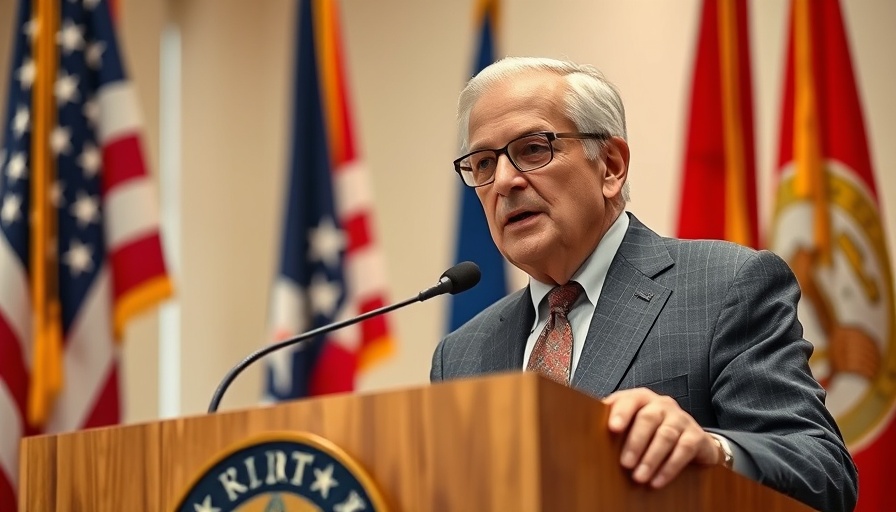
Trump's Call to Action: Special Forces on the Table
In a recent post on Truth Social, former President Donald Trump hinted at a potential military intervention involving U.S. special forces in response to the ongoing crisis with Hamas. Trump shared an interview with retired General Blaine Holt, who claimed that Hamas' failure to release hostages as stipulated in Trump's ultimatum could prompt a strong military response from the United States, specifically special forces operations.
The Stakes of Military Intervention: Implications for Peace
Holt stressed that Trump’s ultimatum is serious: Hamas must comply, or face the consequences. Holt’s remarks come as tensions in the region remain high, with multiple nations involved in ongoing discussions about the future of Gaza. The U.S. is reportedly working to reinforce its military relationship with Israel while addressing the humanitarian crisis stemming from the conflict.
“The right answer is... we have got to put this all back together, and these people have to thrive economically,” Holt underscored during his appearance. This perspective aligns with humanitarian efforts aimed at stabilizing the region post-conflict, suggesting that peace can only be achieved through economic support for involved communities.
The Broader Context: Humanitarian Crisis and Political Tensions
The conflict has already led to severe humanitarian challenges in Gaza, with thousands of casualties reported. The United Nations has raised alarms about the dire situations faced by civilians in the region, calling for immediate action and support.
As the U.S. engages in direct talks with Hamas—a significant shift from its former policy against contact with terrorist organizations—many are watching closely to see if these negotiations yield results. Trump's approach adds a layer of complexity, especially given his recent threats against Hamas regarding the fate of hostages.
Divided Opinions: Support and Criticism of U.S. Policy
Within the political realm, opinions on Trump’s declarations are sharply divided. Critics argue that threatening military action may escalate tensions and hinder diplomatic efforts, while supporters believe that a firm stance on hostages is necessary to secure their release and deter terrorist activities.
Despite the conflicting views, many share a mutual hope for a resolution that prioritizes both freedom for hostages and the safety of civilians caught in the crossfire.
Actionable Steps: What Can We As a Community Do?
As these global discussions unfold, it's essential for mission-minded individuals and social justice advocates to remain informed and engaged. This scenario emphasizes the importance of understanding geopolitical complexities, advocating for humanitarian assistance, and supporting strategic policies that prioritize peace without undermining regional stability.
As concerned members of the global community, engaging with representatives to voice our opinions on these matters and pushing for humane policies can make a significant difference. The call for peace and understanding is louder than ever, and it requires collective action and faith-driven dialogue.
In the face of uncertainty, let’s come together as advocates for peace, raising our voices in support of those suffering due to ongoing conflicts, and demanding meaningful solutions from our leaders.
 Add Row
Add Row  Add
Add 








Write A Comment